Covid curveballs making Chinese students' road overseas even longer
Amid the difficult environment of unceasing Covid-19 restrictions, geopolitical tensions and grim economic and employment outlook, Chinese students are caught between a rock and a hard place when it comes to their higher education. College and visa applications, taking online classes and returning to China to seek employment are proving to be one hurdle after another for the new generation. How will they cope?
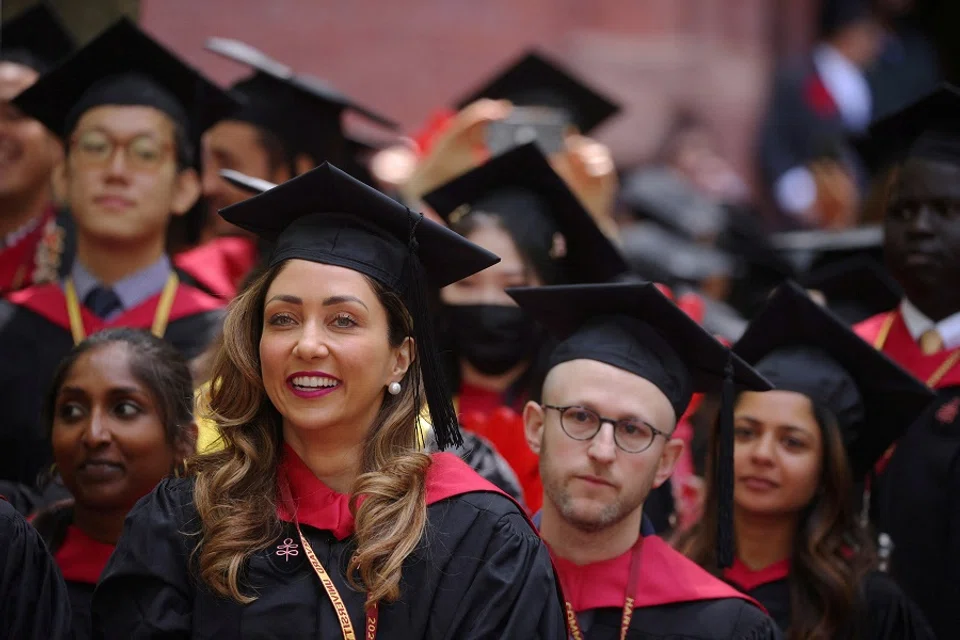
Waking up to the news of cancelled examinations must be the dream of many young students. But for the many hopefuls looking to study overseas, this dream has just turned into a nightmare come true.
Due to epidemic prevention and control measures, many students' plans to take the requisite exams for overseas studies in October and November, such as the Test of English as a Foreign Language (TOEFL), the International English Language Testing System (IELTS) and the Graduate Record Examinations (GRE), have been scuttled.
Notices shared by students on social media show that Beijing had abruptly cancelled the last in-person TOEFL test scheduled for the last week of September, as well as all in-person tests in October.
In addition, the majority of paper-based IELTS tests in October in Beijing were cancelled, just as they were in Sichuan, Yunnan, Henan, Gansu and Jiangsu, along with computer-delivered IELTS tests in cities such as Chengdu, Zhengzhou, Guangzhou and Hohhot.
At the same time, all GRE tests in October were cancelled in Beijing, along with several test sessions in Shandong, Guangdong, Shaanxi, Hubei and Chongqing. The test centre at Jiangsu's Soochow University even cancelled all examinations scheduled until late November.
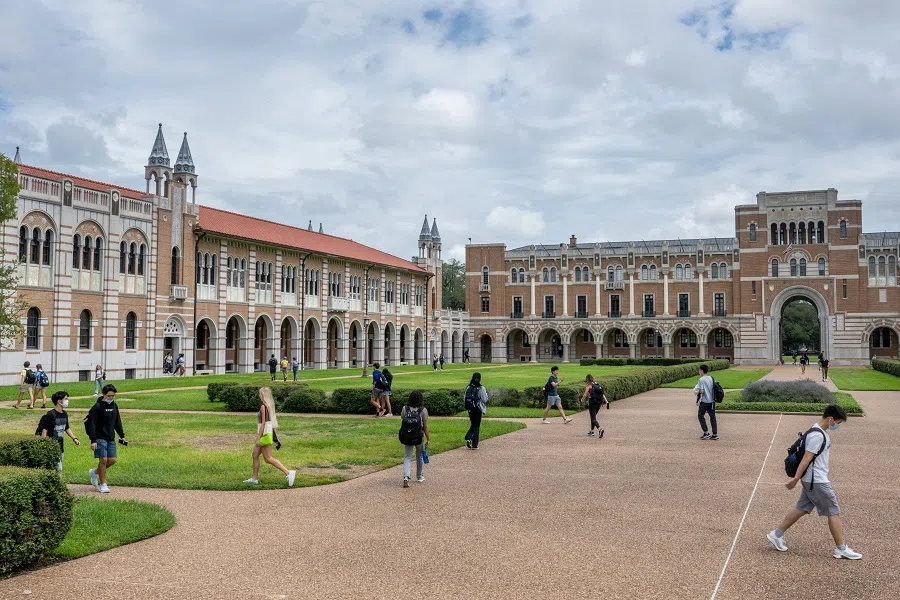
Candidates yet to be notified one way or the other felt they were like Schrödinger's cat - they could be the lucky ones with a chance to enter the examination hall or they could be the really unlucky ones receiving the cancellation notice only at the last minute.
IELTS and TOEFL tests are offered on a weekly basis, while the GRE test is conducted three times each in October and November. Since the tests are held so frequently, many students choose to sit for the examinations in the same year when they submit their university application, or to retake the examination in a last ditch attempt to improve their scores.
The US, the UK and Australia are popular destinations to study for Chinese students. The deadlines to submit the college application, including the language proficiency test scores, are usually at the end of the year prior to the year of matriculation. With the widespread cancellation of exams, students who did not perform well may have to consider postponing their application by a year.
Not the first time
However, this round of cancellations came as no surprise for some students, as this is not the first time entrance exams to study abroad have been cancelled.
In Beijing, the National Education Examinations Authority announced on 28 October 2021 that the TOEFL, IELTS, GRE and Graduate Management Admission Test (GMAT) conducted between 30 October and 30 November 2021 would be cancelled, along with several of the German, French and Japanese language exams. As a result, some unlucky students in Beijing might have to postpone their tests by two years.
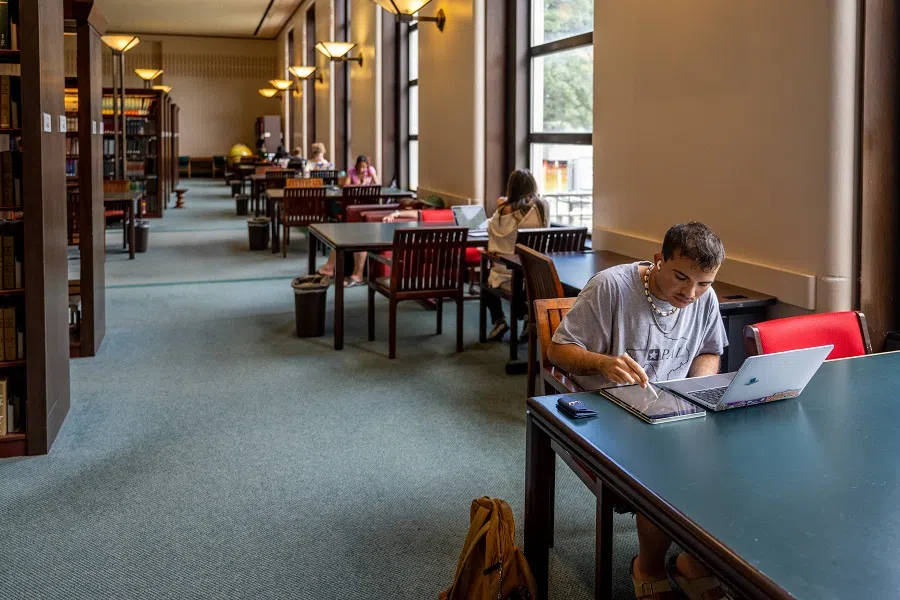
Meanwhile, Beijing, Shanghai and other large cities with many international schools also announced in May the cancellation of the Advanced Placement (AP) exam due to epidemic prevention and control measures. The exam will not be rescheduled and there is no option for online testing. Unlike language tests, the AP exam is held once a year, and candidates are required to register a year ahead. While it does not directly affect students' college application, it improves their chances and can be used to get course credit exemptions and save on tuition fees.
Also in May this year, the International Baccalaureate (IB) organisation cancelled IB exams in East China including Shanghai as Covid-related disruptions affected the delivery of exam materials. As a result, students' final grades were calculated based on their usual performance and predicted grades. In this "exam-free system", the students' predicted grades may not be good enough for their dream school and they can't take the exams to improve their grades.
Previously, all TOEFL, IELTS, GRE and GMAT in May and June 2020 were cancelled across China. People are now prepared and have even come up with their own solutions: most entrance exams to study abroad now offer a "home edition" that can be taken at any time with no limit to the number of attempts.
However, home-based tests are not the students' preferred option because of their strict requirements for the testing environment and hardware, on top of a higher chance of being accused of cheating and having the test scores nullified. At the same time, some schools no longer recognise the grades obtained from such tests as most countries have resumed in-person exams.
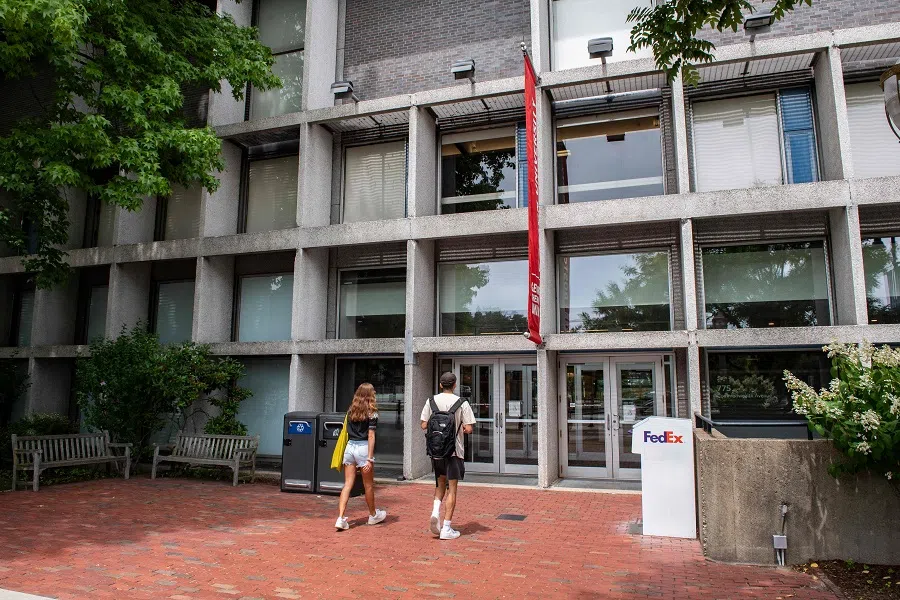
As the current round of exam cancellations only impact a number of locations, affected students can choose to take the exam in other cities. However, a student could still encounter the sudden cancellation of exams or be stuck in quarantine given the volatile Covid-19 situation in various regions.
Taking the exam only the first hurdle
Be it luck or careful planning, for students who manage to take their exam, this is only the first step to studying abroad.
In recent years, US colleges have focused less on academic performance and more on the well-rounded qualities of students. Chinese students hoping to pursue their undergraduate studies in these universities are having a hard time fulfilling the new requirements.
Prior to the pandemic, many Chinese students took part in summer camps organised by overseas universities to experience life abroad, get to know foreign professors who may write recommendation letters for them, and also enrich their portfolios and improve their competitiveness.
But it is difficult to do so now with the strict anti-Covid measures, while science or sports competitions as well as volunteering work that can be used to beef up their applications are either postponed or cancelled.
Chinese students no longer want to study in the US because of the serious coronavirus outbreak, gun violence, anti-Asian sentiment and worsening US-China relations.
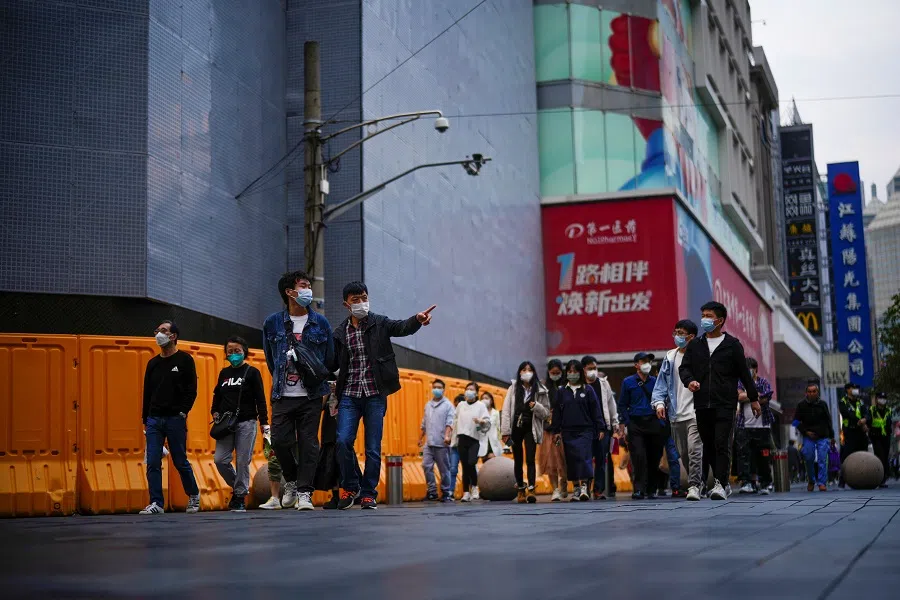
As for students hoping to obtain a postgraduate degree overseas, tense diplomatic relations, especially China-US relations, have also made things more difficult.
The Wall Street Journal reported in August that the number of US student visas issued to Chinese nationals plunged by more than 50% in the first half of 2022 compared with pre-Covid levels. A total of 31,055 visas were issued, down from 64,261 for the same period in 2019.
On top of being affected by strict anti-Covid travel restrictions including the suspension of visa services by the US Consulate in China, the article mentioned that Chinese students no longer want to study in the US because of the serious coronavirus outbreak, gun violence, anti-Asian sentiment and worsening US-China relations.
In addition, the US's 2020 proclamation barring Chinese graduate students and researchers associated with military-related entities from studying or working at US universities has affected them and discouraged more Chinese students from studying in the US.
... less than 50% of Chinese students have returned to campus even after Europe and the US lifted most border restrictions in 2022.
The awkward generation of 'Zoom students'
Even after overcoming numerous challenges and finally receiving an admission offer and a visa, there will still be rough waters ahead for Chinese students, especially during the Covid-19 era.
Based on New Oriental's 2022 Report on Chinese Students' Overseas Study (《2022中国留学白皮书》), less than 50% of Chinese students have returned to campus even after Europe and the US lifted most border restrictions in 2022. Statistics show that 37% of students attended online lessons in China, while 15% of them chose to take a temporary break in China for personal reasons.
While this figure is lower than two years ago, it is still not ideal. For example, the US now allows all international students to return to campus, but only 61% of Chinese students have chosen to do so. This is already the highest figure among the mainstream overseas study destinations.
They call themselves graduates of "Zoom University", and lament their unsatisfactory experience in a self-deprecating manner, saying that they indeed "studied abroad" without being "abroad".

Over the past two years of strict border controls, some students graduated without even returning to their overseas campus. They attended virtual graduation ceremonies and had their "officially disinfected" certificates mailed to them in China.
Students enrolled in short-term or one-year degree programmes may not have even left China due to the pandemic, and completed their studies by attending lessons and interacting with their peers and professors via Zoom or other online meeting platforms.
They call themselves graduates of "Zoom University", and lament their unsatisfactory experience in a self-deprecating manner, saying that they indeed "studied abroad" without being "abroad".
The youths who entered the workforce after a hasty virtual graduation also lost the chance to seek residence or employment abroad because they were not physically there. Not only that, many employers in China question these jobseekers' identity as international students.
An anxious younger generation amid the pandemic
Data released by China's State Information Center in 2021 show that over 2.5 million Chinese students studied abroad from 2016 to 2019. The return rate also grew, especially after the pandemic, with roughly 80% of them returning to China after completing their studies.
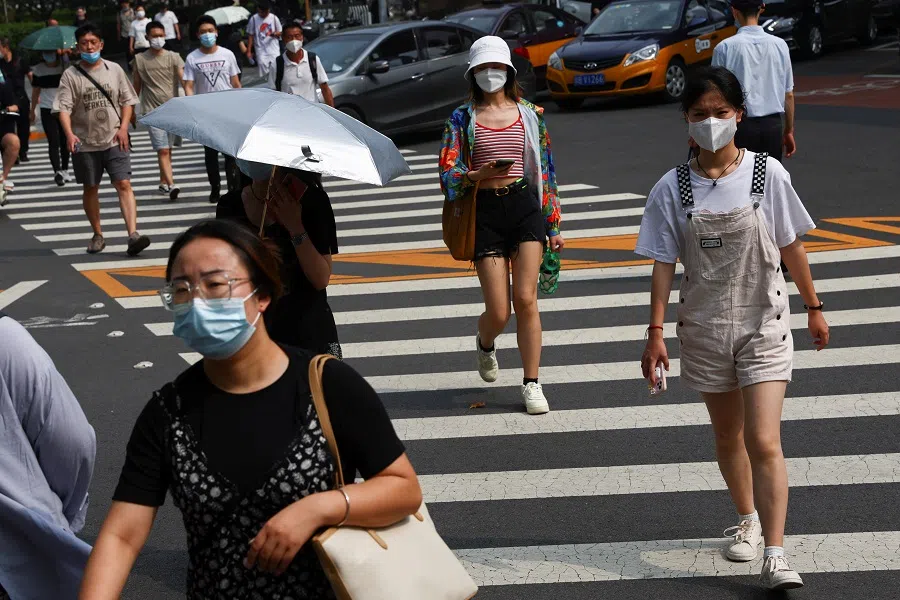
China's Ministry of Education said on 20 September that over 80% of Chinese students have returned to China after completing their education abroad since 2012 after the Chinese Communist Party's 18th Party Congress, up 12 percentage points from the previous decade.
However, analysts pointed out that, among the 80% of returning students, apart from some who voluntarily returned to China, many were unsuccessful in applying for work visas in Europe and the US.
Data from Tsinghua University show that in 2018, 81% of their students who went for overseas study in the US chose to stay there after completing their studies...
In the US, graduates have to obtain a H1B visa through a lottery even if they have an employer willing to hire them. The quota for the H1B is limited, and a large number of applications are rejected every year. Many Chinese students return to China after failed attempts at applying for a visa and their student visa expires.
On the other hand, even if the overall number of returning talents has increased, China still faces a brain drain. Data from Tsinghua University show that in 2018, 81% of their students who went for overseas study in the US chose to stay there after completing their studies, which shows an opposite trend from the overall percentage of returning Chinese students.
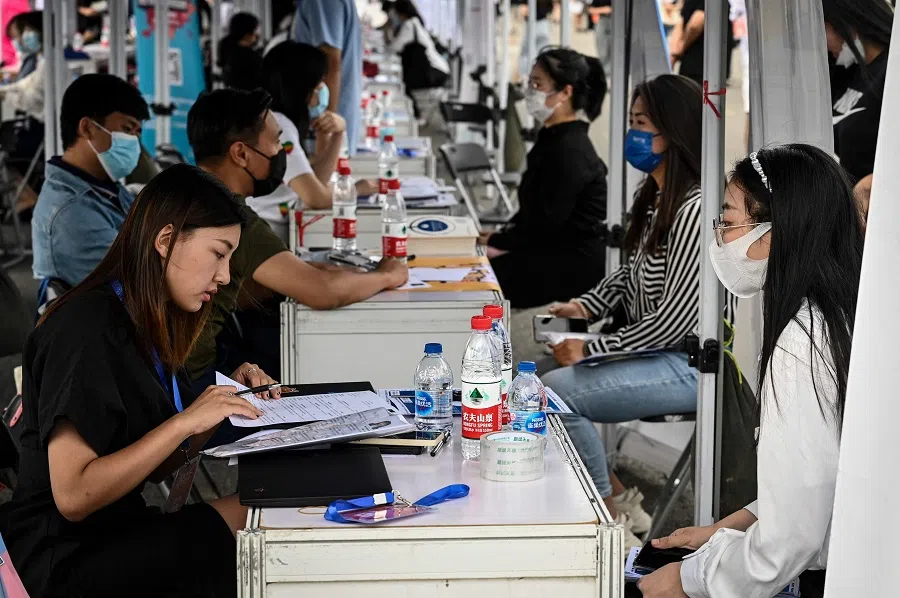
Besides, Chinese students who have returned home also face a tough challenge: China's economic growth and job market have been badly impacted by the strict anti-Covid policy. Yet, the overall number of graduates in China is at a record high, which means that they would face unprecedented challenges in finding a job as well.
Lacking work experience, these returnees are caught between a rock and a hard place - they could not stay abroad and when they are back, they may not be as competitive as the local graduates.
In the face of the country's ceaseless anti-Covid fight and the numerous challenges in international politics, how many Chinese students are still willing to embark on this tough journey of studying abroad?
Chinese social media is still filled with discussions about how one can seek better prospects overseas. Coupled with the country's serious "education involution" problem, it is expected that many Chinese youths will continue to seek study opportunities abroad, no matter how difficult it may be.
This article was first published in Lianhe Zaobao as "下午察:中国学生的坎坷留学路".
Related: Post-00s youths want to rewrite workplace norms in China | Depression among China's college students reveals anxieties about jobs and Covid | Record 10.76 million Chinese university graduates face bleak job market and struggling economy | Chinese returning talents losing their shine? | Study in the US? Chinese students are having second thoughts | A one-sided relationship: China-US education exchange





